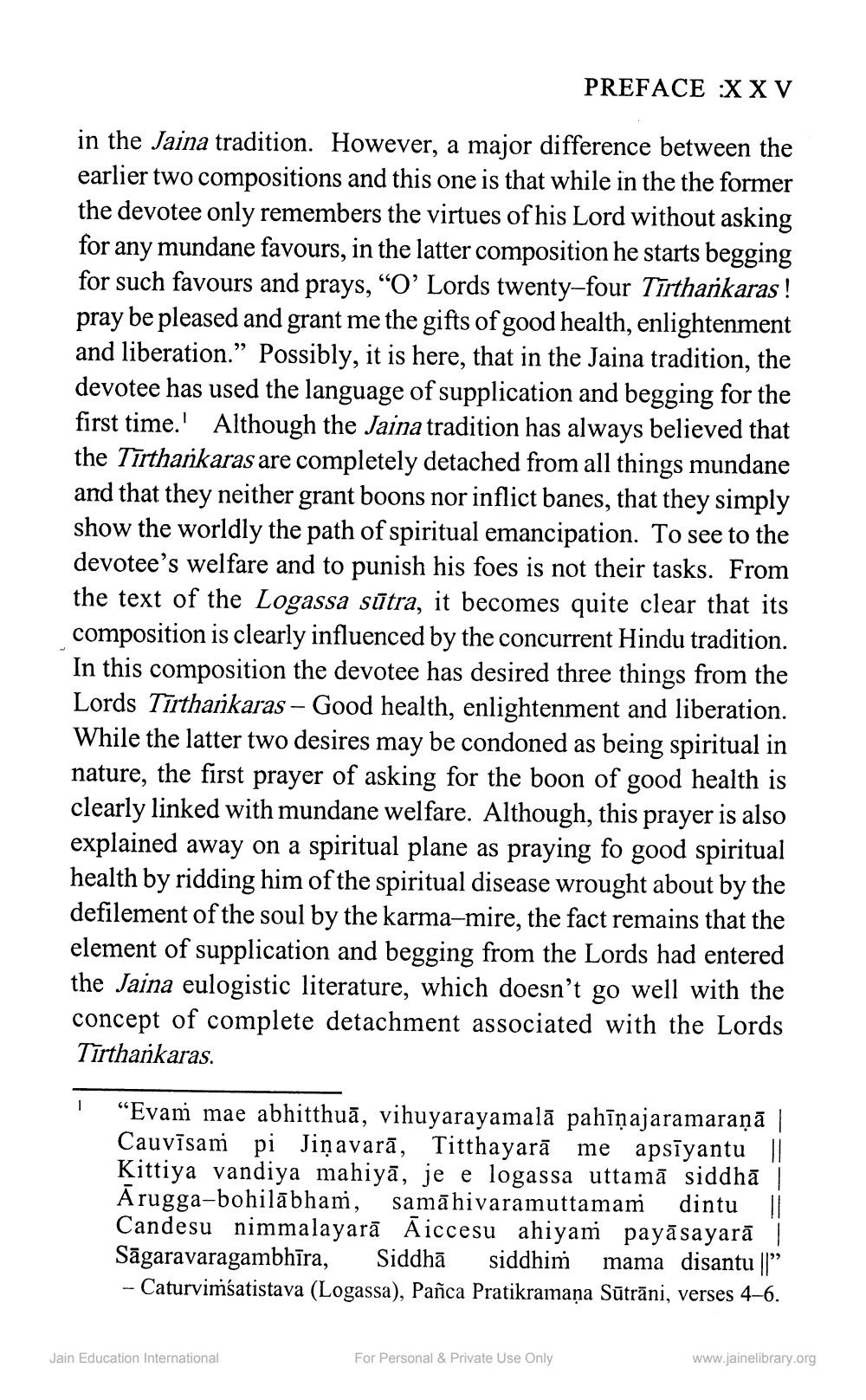________________
PREFACE :X X V
in the Jaina tradition. However, a major difference between the earlier two compositions and this one is that while in the the former the devotee only remembers the virtues of his Lord without asking for any mundane favours, in the latter composition he starts begging for such favours and prays, “O'Lords twenty-four Tīrtharkaras ! pray be pleased and grant me the gifts of good health, enlightenment and liberation.” Possibly, it is here, that in the Jaina tradition, the devotee has used the language of supplication and begging for the first time. Although the Jaina tradition has always believed that the Tīrtharkaras are completely detached from all things mundane and that they neither grant boons nor inflict banes, that they simply show the worldly the path of spiritual emancipation. To see to the devotee's welfare and to punish his foes is not their tasks. From the text of the Logassa sūtra, it becomes quite clear that its composition is clearly influenced by the concurrent Hindu tradition. In this composition the devotee has desired three things from the Lords Tīrtharkaras - Good health, enlightenment and liberation. While the latter two desires may be condoned as being spiritual in nature, the first prayer of asking for the boon of good health is clearly linked with mundane welfare. Although, this prayer is also explained away on a spiritual plane as praying fo good spiritual health by ridding him of the spiritual disease wrought about by the defilement of the soul by the karma-mire, the fact remains that the element of supplication and begging from the Lords had entered the Jaina eulogistic literature, which doesn't go well with the concept of complete detachment associated with the Lords Tīrthankaras.
“Evani mae abhitthuā, vihuyarayamalā pahīņajaramaraņā | Cauvīsam pi Jiņavarā, Titthayarā me apsīyantu || Kittiya vandiya mahiyā, je e logassa uttamā siddhā | Ārugga-bohilābham, samāhivaramuttamam dintull Candesu nimmalayarā Āiccesu ahiyam payāsayarā | Sāgaravaragambhīra, Siddhā siddhim mama disantu ||” - Caturvimśatistava (Logassa), Pañca Pratikramaņa Sūtrāni, verses 4-6.
Jain Education International
For Personal & Private Use Only
www.jainelibrary.org




